God of the 4th Sun Read online
Page 2
The court of the All-Knowing King was so far ahead of all other contemporary thinking that it was bound to appear odd to anyone who hadn’t understood and embraced its high ideals.
So as the courtiers lost at their games, tripped their way clumsily around court, and boasted of their weakness and physical ineptness, the servants too found themselves drawn into this new utopia of correct behaviour. For how could a servant be seen to be more capable than his or her master or mistress?
Of course, if a servant tripped with a plate that smashed, then woe to him!
But if he were so unwise as to put physical prowess above intelligent behaviour, then woe to him all the more!
The more the king stumbled, the more his courtiers and servants stumbled.
The more he wheezed and gasped for air, the more his courtiers wheezed and gasped too.
When the king began to excuse himself because he felt exhausted, then they said not to worry, for they were exhausted too.
When the king took to his bed, then they also took to their beds.
‘But I’m ill!’ the All-Knowing King wailed.
‘But I’m ill!’ his courtiers and servants all wailed.
‘Can’t someone please help me?’ the All-Knowing King pleaded weakly.
‘Can’t someone please help me?’ his courtiers and servants all pleaded weakly.
‘Water, I need water!’ the All-Knowing King whispered desperately.
‘Water, I need water!’ his courtiers and servants all whispered desperately
And in this way, just like the All-Knowing King, his whole court happily passed away while confined to their beds.
*
Chapter 5
Amongst so similarly dressed people – with flowing, bloom-decked cloaks, and looming feathered headdresses – Tesetra couldn’t immediately make out where her sisters where in the procession.
She ran through the well-ordered lines, raising calls of indignation and curses from whomever she passed.
It was sacrilege to disturb such an important ceremony. It might even result in the Jaguar god refusing to accept the sacrifices.
The anger around her increased when they saw her heavily tattooed arm, the emblem of the Tearful Moon: she was an untouchable, and she was bespoiling a sacred rite.
They would have pushed and shoved her, held her forcibly; yet each and everyone there feared that their own actions would thereby taint the ceremony as it descended into a chaos of angry recriminations and violence.
They didn’t wish to break off from the calming, reassuring chant the procession had all taken up. They let her be. They let her run amongst them, each hoping that it would be someone else who stopped her outrageous behaviour.
It was an extremely long procession. Tesetra had almost run along most of its length when it turned once more into the dark, shadowed side of the pyramid. Here it would be even harder to make out her sisters amongst so many ceremonially-dressed people.
To her side now there was the equally darkly shadowed jungle. No one saw this side of the pyramid this close up, accept those chosen to take part in the processions. No one was allowed, even, to enter this area of the jungle. It was dangerous to do so anyway, especially when the jaguars were prowling around after a ceremony.
Here the stone concourse necessarily transformed into one of the wooden bridges that spanned the deep, black valley cut into this side of the pyramid. The drop from here was precipitous, frightening, and yet there were no walls or fence to prevent anyone from falling off the bridge.
‘Tesetra! What are you doing here?’ someone angrily hissed as she charged past yet another line of almost uniformly garbed people.
Tesetra recognised the voice; one of her elder sisters, Pilodea.
She whirled around, glad that her searching was over. She smiled in relief when she saw that her eldest sister, Fretra, was thankfully walking alongside Pilodea.
‘Pilodea! Fretra! The Serpent god can help us–’
‘The Serpent god?’ Fretra hissed furiously. ‘A children’s story? You insult our sacrifice to–’
‘But that’s just it, Fretra! You don’t need to–’
‘Tesetra! Go away! You’re not allowed here!’
‘You’re spoiling it for us!’ Fretra wailed.
‘The Jaguar god will refuse–’
‘He didn’t respond to the sacrifice of our paren–’
Suddenly, Fretra was frantically pushing Tesetra aside.
‘You’re jealous that you weren’t chosen!’
‘No, no, Fretra! Please you’ve got it all wron–’
She was closer to the edge of the causeway than she had thought. Her feet scrambled for purchase – but one foot was already stepping out onto nothing but empty air.
She couldn’t keep her balance any longer.
She toppled backwards, now falling uncontrollably.
*
For a brief moment, Tesetra feared she would plummet to her death, landing in the dark valley carved deep into the side of the pyramid.
The jaguars from the jungle were already gathering here, attracted by the familiar sound of the trumpets and beating drums announcing yet another feast for them.
The satchel she had been carrying across her shoulder was already falling down into the valley, towards the waiting, hungry jaguars.
Fortunately, they had already crossed the bridge when her sister had pushed her away. Unfortunately, this still meant there was a steep, punishing fall from one level of the concourse to a lower section far below.
To slow her fall, Tesetra urgently reached out for the protruding elements of the many sculptures she was falling past. She never got a true, tight grasp, yet her wildly flailing hands and feet managed to briefly grip enough arms, noses, and rasping tongues to slow her fall.
Even so, she landed on the lower part of the causeway with a bone jarring impact that both severely winded her and left her momentarily dazed. By the time she’d recovered enough to stand once more, the procession had moved much farther on, its head already nearing the pyramid’s flattened top.
There was nothing Tesetra could do anymore.
As the head of the procession reached the lip of the plateau opening up onto the valley’s cliff-like drop, they kept on walking.
They were all still singing joyfully as they fell into the darkness leading down to the valley floor.
*
Chapter 6
Tesetra only lingered long enough to see the most forward part of the procession – where she believed she had found her sisters earlier – casually walk towards and topple over the pyramid’s edge.
She had hoped that what she had told them might persuade them to back away from willingly going to their deaths.
But as with every ceremonial procession Tesetra had ever watched, there were no last minute squabbles indicating that someone was refusing to plummet over the peak’s lip.
Like everyone else in the procession, like every man woman and child there, her sisters subserviently, perhaps even happily, unhurriedly walked over the edge and fell down towards the waiting jaguars.
The procession, being so long, was still toppling over the edge and into the valley’s waiting darkness even as Tesetra finally clambered down the last few statues leading to the paved floor.
At last, she heard the clarion call of trumpets that announced the Jaguar god was sated; although she could no longer be bothered to look back and see it, Tesetra knew that what remained of the procession would have come to a halt, the survivors turning and heading back down the ramp.
Tesetra was crying, her tears like the Tears of the Moon; silvery, cool, and the very purest of waters.
As she stumbled away, she failed to notice that a small plant spouted, burgeoned, then bloomed where every teardrop fell.
*
Chapter 7
By the time she was deep within the jungle once more, Tesetra was no longer crying.
Her sisters had chosen to walk to their deaths
, after all.
They had been chosen for this role long ago, as far back as their first birthday. A choice that had been reaffirmed once more on their sixteenth birthday.
Pilodea – ‘Jaguar Bride’.
Fretra – ‘Flower of the Earth’.
Their lives had been set out for them, just as her own fate had been determined: first by the date of her birth, it’s inauspicious positioning on the great stone-cogged calendar gracing the centre of the pyramid’s forecourt; secondly, by the priest’s dangerous journey into the Ninth Underworld – his tongue lacerated and layered with a mix of plant and animal venoms – when she had at last been deemed a woman.
Her first tattoo, naturally, had been that of the Snake Song. Although Tesetra had been little more than a newborn baby, her mother had been commanded to take her out into the jungle, to leave her there for at least a week.
The gods would decide if she would live and be allowed back into the city.
A week later, even though devoid of any hope of finding the young Setrast alive, her mother had made her way back through the jungle. She had carefully remembered and marked the course she had taken that dreadful day when she had been ordered to abandon her child.
When she first arrived at the spot where she had left Setrast, however, she wailed in anguish, thinking she must have made a mistake, that she must have got lost somewhere along the way: for although it was well known how quickly the jungle could grow, everywhere around her appeared to be totally unfamiliar.
The small hollow where she remembered leaving her baby was no longer there. Instead, a fearsomely barbed wild rose grew everywhere about this area, having already grown into and conquered the surrounding vegetation.
Then – she heard an echo of her wailing.
It was her child, her darling Setrast; hidden somewhere deep within the protective embrace of the interwoven stems.
Without even pausing to consider the damage it might cause her, Setrast’s mother began to force her way through the tangled wickerwork, forcing her way past the thorns, ignoring the huge gashes they made to her skin, her own tattoo of a Flowered Vine.
She gasped with joy. Setrast was not only unharmed, kept safe from any wandering beasts by the thorns, but was also well fed. A number of berry-bearing plants had strangely sprouted around her. There were also small pools of the purest, most silvery water, which Setrast had obviously been able to drink from.
Yet when Setrast’s overjoyed mother returned to the city carrying a live child – rather than the bloodied sheets every other mother had found after being ordered to abandon their child – few other people thought this was a wonderful event to be celebrated.
‘She must have gone out every day to feed and protect the child,’ people whispered behind her back.
‘She must have placed the chid in a safe cave, with food to sustain her,’ others voiced more forthrightly.
Yet neither of these things could possibly be true, the authorities assured them.
Naturally, the parents of a child destined to be abandoned to the jungle were carefully watched and regularly searched throughout the whole week. When abandoning the child, they were similarly allowed to take nothing but a sheet to wrap their child in. They were even followed to ensure the baby was left behind in a small clearing or hollow, as instructed.
Although it was painful for Setrast to have her tattoo altered while her first was still fresh, the singing serpent was slightly changed so that its tail coiled back on its mouth, a sign of the serpent devouring itself, of eternal life; a sign, also, of suspiciously dark attributes, or someone favoured by the demons.
As the young Setrast grew, the arm naturally widened, the skin expanding, stretching the tattoo, fading the colours. New patterns, like the shapes that can be read into the formations of the stars, began to naturally form.
On her sixteenth birthday, these patterns were once again interpreted by a priest.
The priest voyaged into the Third Jaguar Heaven, searching for new symbols and pointers to Setrast’s fate and purpose.
The meshing cogs of the great calendar, the smaller 260-day cycle of rituals turning within the year’s 365 days, the synchronicity of their brightly painted symbols, were checked once more.
The Tears of the Moon.
This was her new tattoo.
Her new name.
Tesetra.
Her fate had been decided. She was exiled once more, this time with instructions never to return, even if she survived.
Now that her sisters had followed her parents into the underworld, there was no need, no wish, for her to return anyway.
*
Chapter 8
As Tesetra ran through the jungle, she heard the sounds of iron on stone, a sound that anywhere else would be a warning to beware.
But she knew her friend Degrat often worked here in the stone quarry, knew too that he had been gifted a precious tool taken by a fierce warrior from the Iron Men.
Degrat had been distraught on the day Tesetra’s name and therefore fate had been announced. They had been friends from the time when they had been children, one of the very few boys willing to associate with the inauspiciously named Setrast. The son of a mason, and now a young mason in his own right, Degrat had always seen himself as having a little more control over his life than the other boys.
Besides, despite her unfortunate naming, her cautionary, ill-omened tattoos, Setrast had always been an exciting, vibrant person to be with. Her pretty, delicate face had also gradually blossomed into an angular beauty, her hair like a dark, glistening river.
Tesetra headed towards the quarry, seeing this as an opportunity to say goodbye to Degrat. She hadn’t been allowed to talk to anyone on the day of her naming, of her exile.
She had simply been ordered to leave the city. And no one had been allowed to either follow or talk to her.
The quarry was full not only of raw boulders and the cut stone blocks readied for transportation to the city, but also of half completed, unpainted sculptures. It was amongst these that Degrat painstakingly worked.
He was so intent on his work, he didn’t hear Tesetra’s approach. Covered in dust from the stone he was working on, he could have been mistaken for one his sculptures come to life. It completely hid his own tattoo – ‘Most Favoured of the Jaguar’ – one that in his case covered his whole body with the darkly exploding stars of a jaguar’s skin.
He started in shock when he suddenly realised Tesetra was close by, his strained, dust-filled eyes widening in what seemed to her to be both delight yet also embarrassment.
She glanced at the statue he was working on. It was completely unlike his normal sculptures, the graphically symbolic renderings of gods, historical tales and the animals of the surrounding jungle.
This one was far more lifelike than his normal work.
And that’s why Tesetra recognised that it was a statue of her.
*
Chapter 9
Her hair flowed like a river. It extended well beneath her skirt, flowing off in two directions.
In one hand, as if irrigated by the waters of her hair, she was holding the stem of a prickly pear tree, burgeoning with fruit that Degrat had rendered to look almost like hearts.
In her other hand, she held a cross, symbol of fertility, of the four winds that brought the rain to irrigate the crops.
As if all his wasn’t strange enough, Degrat had added two smaller bars to the cross, transforming it into the ancient Chakana; the Tree of Life, with its Three Levels of Rain, Jaguar and Serpent.
Of course, Tesetra was surprised that Degrat had decided to make a carving of her; yet she also felt strangely elated that, in line with her discovery that the Snake People really existed, here was another reference to the possible existence of the Serpent god.
‘Degrat,’ she exclaimed excitedly, ‘why have you included the Chakana? Do you believe the Serpent god is more than just a ridiculous legend?’
Although still a lit
tle embarrassed, Degrat almost sighed with relief that Tesetra hadn’t challenged him on why he’d made this elaborate carving of her.
He shook his head.
‘No, of course not!’ he insisted.
He appeared annoyed, as if asking him if he believed in such a thing implied that he still adhered to childishly primitive beliefs.
‘It’s just that…just that I was worried for you, when you were exiled. I hoped that…well, that I could ask the Jaguar god to favour you. That even…that even if you died, you would be allowed to ascend through the Thirteen Heavens.’
He looked more ashamed than ever. Unusually, too, for such an accomplished carver of deities, he didn’t look as if he knew what he should be doing with his hands.
He was nervous; he was blushing ferociously.
Obviously, Tesetra wasn’t aware that Degrat possessed a magical Smoking Mirror. It was a mirror that allowed him to see inside the hearts of other people: and so he had now known for a long time that Tesetra didn’t love him in the way he so dearly loved her.
Yes, she desired what some would foolishly claim was the need for a husband; yet Tesetra desired no husband (nor wife either), no marriage. It was a deep desire, too – for she felt strangely, inexplicably incomplete. It was an animalistic desire: there was no other word for it. It was an all-consuming need, a want – but one she had unfortunately decided wasn’t attainable from Degrat.
The Smoking Mirror, of course, was a wonderful gift to process. Sometimes, however, like this one, it could cause you more anguish and agonies that you believed you could continue to handle.
‘Are you staying?’ Degrat asked hopefully. ‘Have the priests relented?’
He stared in a mix of awe and fear at Tesetra’s tattoo of the weeping moon. Before Tesetra could answer his question, however, his eyes flickered away from observing the tattoo. He glanced over her shoulder, both curious and irately suspicious.
She turned to see what it was that could have drawn his attention.
It was a boy, standing on the very edge of the quarry. A boy who looked around the same age as them. He had the golden hair of the Snake boy, yet he was far too old to be that same boy.

 Heartache High: The Primer
Heartache High: The Primer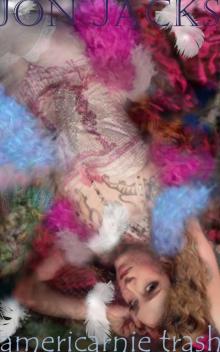 Americarnie Trash
Americarnie Trash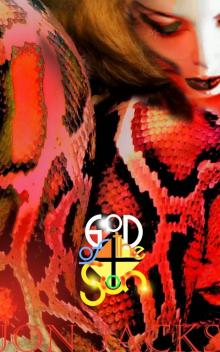 God of the 4th Sun
God of the 4th Sun The Last Angel
The Last Angel Wyrd Girl
Wyrd Girl A Guide for Young Wytches
A Guide for Young Wytches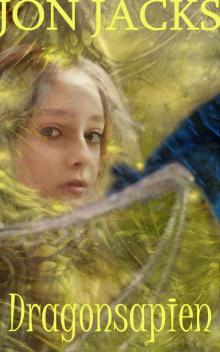 Dragonsapien
Dragonsapien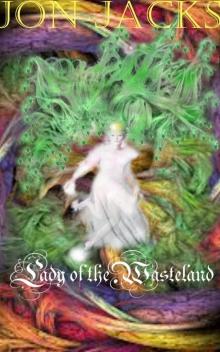 Lady of the Wasteland
Lady of the Wasteland The Cull
The Cull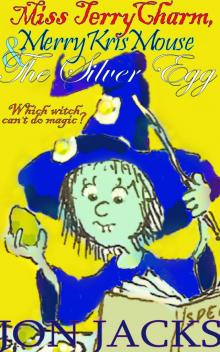 Miss Terry Charm, Merry Kris Mouse & The Silver Egg
Miss Terry Charm, Merry Kris Mouse & The Silver Egg Seecrets
Seecrets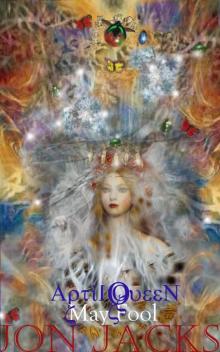 April Queen, May Fool
April Queen, May Fool DoriaN A
DoriaN A Died Blondes
Died Blondes Heartache High: The Wakening
Heartache High: The Wakening Cygnet Czarinas
Cygnet Czarinas The Caught
The Caught Sick Teen
Sick Teen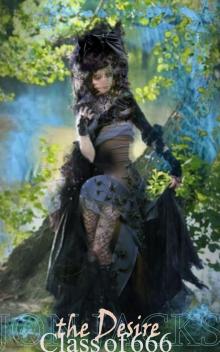 The Desire: Class of 666
The Desire: Class of 666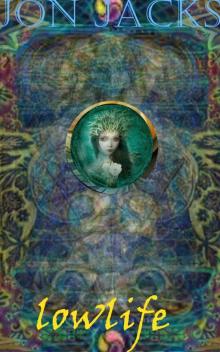 Lowlife
Lowlife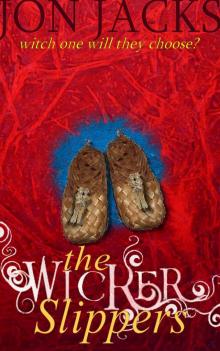 The Wicker Slippers
The Wicker Slippers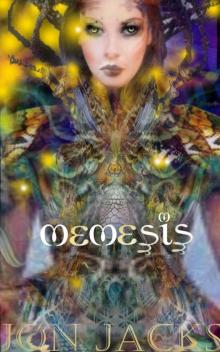 Memesis
Memesis The Rules. Book 1; The End
The Rules. Book 1; The End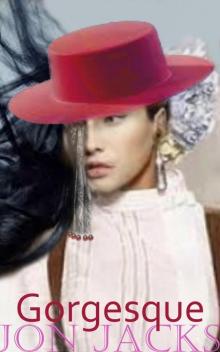 Gorgesque
Gorgesque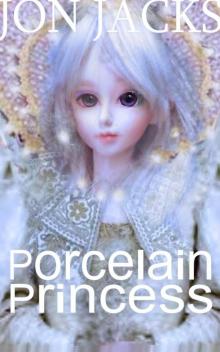 Porcelain Princess
Porcelain Princess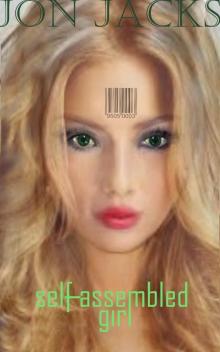 Self-Assembled Girl
Self-Assembled Girl Heartache High
Heartache High We Three Queens
We Three Queens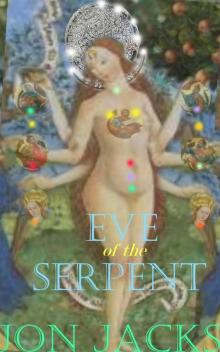 Eve of the Serpent
Eve of the Serpent Queen of all the Knowing World
Queen of all the Knowing World The Wendygo House
The Wendygo House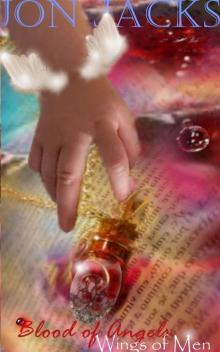 Blood of Angels, Wings of Men
Blood of Angels, Wings of Men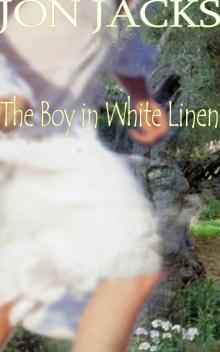 The Boy In White Linen
The Boy In White Linen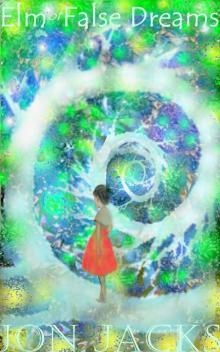 Elm of False Dreams
Elm of False Dreams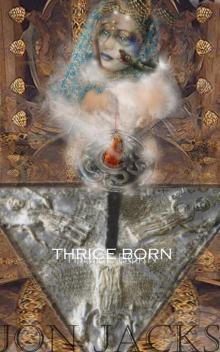 Thrice Born
Thrice Born